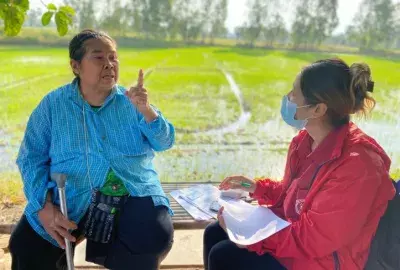Error message

In Cambodia, an increasing demand for land has accompanied rapid economic expansion over the past decade, leading to land tenure insecurity for many of the country's poor. Despite the adoption of a new land law in 2001 and the establishment of the Land Management and Administration Project (LMAP) in 2002, tenure problems have continued. The difficulties with land reform policy relate partly to LMAP's design problems and partly to poor execution. These difficulties are the result of both bureaucratic weakness and the implementation of land policy reform by a politicized and personalized bureaucracy characterized by patron-client relationships. While there is no quick fix to problems in the land sector, steps toward a solution should give top priority to resolving land claims in conflict-prone areas, encourage registration of all land transfers, incorporate the participation of residents in the development of solutions tailored to local settings, convince elites of the political utility of land reform, and include citizen empowerment on the reform agenda.
The views expressed in this publication are those of the author and not necessarily those of the Center.
In Cambodia, an increasing demand for land has accompanied rapid economic expansion over the past decade, leading to land tenure insecurity for many of the country's poor. Despite the adoption of a new land law in 2001 and the establishment of the Land Management and Administration Project (LMAP) in 2002, tenure problems have continued. The difficulties with land reform policy relate partly to LMAP's design problems and partly to poor execution. These difficulties are the result of both bureaucratic weakness and the implementation of land policy reform by a politicized and personalized bureaucracy characterized by patron-client relationships. While there is no quick fix to problems in the land sector, steps toward a solution should give top priority to resolving land claims in conflict-prone areas, encourage registration of all land transfers, incorporate the participation of residents in the development of solutions tailored to local settings, convince elites of the political utility of land reform, and include citizen empowerment on the reform agenda.
The views expressed in this publication are those of the author and not necessarily those of the Center.







